This week I will focus on WHAT Culture is as over the last few weeks I have written quite a few articles about WHY & HOW Culture and also interacted in Paul Hunter’s Twitter conversation on the area…
Here are the responses I gave on Twitter…
I will also share with you some of the things I put together for the Keynote presentation I made on Player-centred Coaching at the Ohio University Global Coaching Seminar for their Masters in Coaching Education students.
I always find that I am in a very unique position when it comes to Culture for several reasons…
I love reading books and research about the topic, I have lived in Chile for 4 years which was a completely different culture to living in the UK, I am a coach and I am a teacher, I have coached from kids to adults, both males & females, I have coached in environments where I have been there for 8 years or only few days, I have worked in the most expensive schools in a respective country on 3 occasions, I have been in both “bad” & “good” cultures as a player, coach and teacher, and I have created, developed & enhanced cultures in schools & clubs in different countries.
I have been inside 2 of the most successful rugby environments in the sport: The Fiji 7s team for 2 weeks whilst they did their 2 week pre-2016 Rio Olympics Training Camp in Santiago, Chile where I observed all of their trainings sessions and spoke with their coaches and captain, having facilitated all of the organisation for this to happen. I have spent 3 weeks inside the Canterbury Crusaders in Christchurch, New Zealand where I observed their many training sessions, spoke with various coaches 1-on-1, immersed myself in the surrounding rugby environments, and sat inside the coaches’ box on game day.
Here are just a few of the research articles that I have read and recommend you to read:-
- Four Keys to Building a Championship Culture (Chantal N. Valleé & Gordon A. Bloom, 2016);
- Ferguson’s Formula in Harvard Business Review (Anita Elberse with Sir Alex Ferguson, 2013);
- A Case Study of Excellence in Elite Sport: Motivational Climate in a World Champion Team (Ken Hodge, Graham Henry & Wayne Smith, 2014);
- Artefacts and the All Blacks: Rites, Rituals, Symbols and Stories (Thomas Johnson, Andrew J. Martin, Farah Rangikoepa Palmer, Geoffrey Watson, Phil L. Ramsey, 2013);
- A Core Value of Pride in Winning: The All Blacks’ Team Culture and Legacy (Tom Johnson, Andrew John Martin, Farah R. Palmer, Geoffrey Watson, & Phil L. Ramsey, 2013);
- The Psychology of Ongoing Excellence: An NCAA Coach’s Perspective on Winning Consecutive Multiple National Championships (David Yukelson & Russ Rose, 2014).
(If you would like a copy of these just send me a message on Twitter, @NH_Coaching_, or email me, nickhill@nickhillcoaching.com, and I will get them to you.)
Here are just a few of the books that I have read and recommend:-
‘The Culture Code’ by Dan Coyle and ‘You Win in the Locker Room First’ by Jon Gordon would be two great places to start if you haven’t already read them.
WHAT is Culture…
First up I will look to help share and define WHAT is Culture and Jon Gordon does a great job in his book…
So it basically comes down to what you do on a daily basis, week-to-week, month-to-month and year-to-year.
Dan Coyle also does a great job of defining WHAT is Culture in his book…
Again it comes down to what you do on a regular basis in the process of striving to reach your goal(s).
Wade Gilbert is one of the world leading experts in this field and I have been very fortunate through Vern Gambetta’s GAIN Professional Network to learn from and connect with Wade. He does a great job in defining WHAT is Culture in his book ‘Coaching Better Every Season’…
The section on p.18 sub-headed: “Creating a Winning Team Culture”:-
- “Team Culture has been defined as a pattern of shared assumptions that guides behaviour.”;
- “Culture comprises both the obvious artefacts of the team… and the less obvious norms and rituals.”;
- “…the way we do things around here.”.
It starts off with your Core Values…
What do you stand for…? What are your standards…? What do you believe in…? What is important to you…? What maters to you…? Why do you do what you do…?
A key part of this process is finding ways to building pride and one way is to start a tradition and as an example “What will you put into the jersey…?”. Another thing to ask is “What will your team be remembered for…?”.
Creating and setting behaviour standards is also an important part of this process. What do they look like and what do they not look like…? As an example I would make a small physical contact or non-verbal communication with each of my pupils/players that are present in a lesson/session, e.g. a fist pump contact or a little nod of the head whilst making eye contact.
Here are links to 2 webinars Wade has done on the Human Kinetics website (they are free but you need to register to access them) and one of them is on his Facebook page as well:-
https://www.facebook.com/CoachingBetterEverySeasonByWadeGilbert/videos/1720193648056808/
A key aspect in all of this is that the culture is shared by everyone in the team and one way to facilitate this is by creating opportunities for everyone in the team to contribute their thoughts & feelings as to what they feel the behaviour standards should be. It is a very small thing in the grand scheme of things but a very important and essential part of this process otherwise not everyone will buy-in to the team’s culture and issues will arise in the future that could, and quite often will, derail the train from heading towards its goal.
I’ll now share a few other things as to WHAT is Culture from several personal experiences that I presented at the Ohio University Global Coaching Seminar in the USA…
Mantras are part of what your Culture will become…
Two of mine are… #BeTheBestYouCanBe #ForTheTeam
In Chile with Old Boys, Edmundo Olfos (Head Coach) and I created the mantra of “One Team, One Club, One Family” as the Old Grangonian Club is a private club in Santiago for only people that have been educated at The Grange School. There are several generations of families that have been through the school and played for Old Boys so the family aspect was a huge part of the Culture within the club.
Motivational Videos can become a part of your Culture to inspire your players…
At the start of each season I would use one and then the players would discuss and agree their goals for the upcoming season. I evolved these videos into using them before every match around 11am in the morning of a 2:30pm kick-off to help the players’ psychological preparations for the upcoming game. They would always have a link back to the History of the rugby in the College and video clips of great moments from the last match and previous matches that season.
Linking things back to the History plays a very significant role in creating and developing a Culture…
This brings the past to life and helps facilitate the feeling of doing something far bigger than one’s self. It is very significant to recognise and respect what has gone on before and it is a very powerful motivating tool to inspire your players to make their mark in the new History and leaving their mark.
Doing something for BIGGER than one’s self is another crucial part in what your Culture will stand for…
This helps to develop a selfless team rather than a selfish team, an important subtle difference. This will generate an overriding powerful force to help drive the team forward and push them on in their time of need, e.g. when they need a try to win the game in the last play of the game.
Finding an Emotional Connection can play a big part in developing and maintaining your Culture…
If you are able to find/discover one of these then you’ll be on to a big winner as it will draw up strong emotions inside the players and fuel their intrinsic motivation to drive towards their goals. It may give a kick up the backside for some players and it may draw some players towards the team wanting to join the journey as they want to do something about it and help the players that are already in the team.
Rituals become part of your Culture as time goes by…
You will just get a feeling as to what they will be… You won’t necessarily know when they will come out of the woodwork… It might be something you do together… It might be some that the players do on their own together…
My teams would go into a huddle once they had run out on to the pitch from the changing rooms. Whilst I was at Denstone College, during our 1st XV pre-season Training Camp, at one point during the 5 days we would push them to a point where they thought they couldn’t do anymore and then nudged them a little further, both physically and mentally. The team would then use this reference point at some time in the future when they needed it most so reinforce that if they could cope with that experience, then they could cope with the situation they were then in.
Routines become part of your Culture…
I use these to “test” whether the players are on their game, concentrating and ready for the upcoming session. They also help the players get into their zone and focus on key aspects rather then non-important things. More importantly it gives me the opportunity to empower the leaders of the team to feel the vibe of their teammates and to police a lack of focus or concentration. All it takes is a quiet word in the ear of one of the leadership group players and then they say/do what is necessary.
Standards are the strong foundations from what a Culture is built from…
Without them, players will just do their own thing and each will head off in different directions doing different things. Standards are like a guiding light as to what is acceptable or not and can help keep the train on the tracks heading towards its final destination. They are the behaviours that the team lives and stands by day-to-day.
In Closing…
At the highest levels of sport and in the most competitive of environments the difference maker between the best and the rest is CULTURE. The same principles can be applied across all levels of the sporting landscape, whether from Physical Education lessons with 5 year olds to amateur sports teams regardless as to whether you have funding or no money. Culture is priceless.
All the teams at the true elite level have all the funding and resources at their disposal to be successful but not very many are. Take the NFL as an example, the Dallas Cowboys just spent $2 billion on their practice facilities (check out the Amazon Prime All or Nothing Series 3), but why are they not the serial Super Bowl winners like the New England Patriots…?! The ultimate factor that is attributed to sustained success is CULTURE.

I’ll round things off by sharing the article below which shares some of the insights into the Crusaders’, the most successful Super Rugby Franchise, environment and some of the core things that has led to their Culture of Sustained Excellence over a very long period of time:-
Super Rugby Final: The anatomy of 20 years of Crusaders dominance
Feel free to get in touch with me with questions you’d like answering or a particular topic you’d like to know more about…
I plan to write a weekly article every Sunday evening…
If I don’t receive any recommendations during each week then I’ll pick a topic or an experience to write about to share with you that I hope will help you on your Coaching Journey as one person teachers, two people learn…


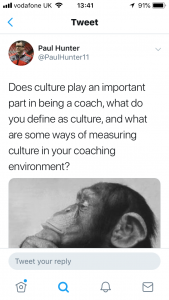
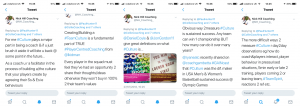
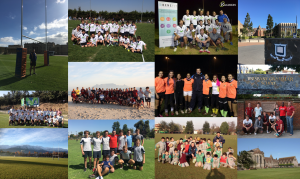
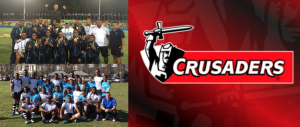
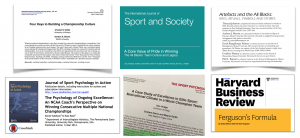
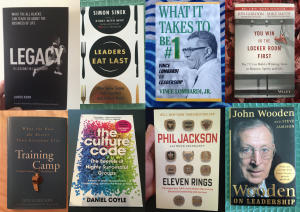
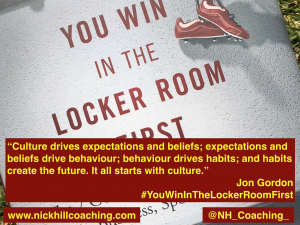
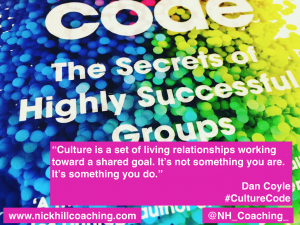
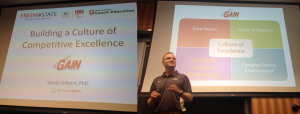

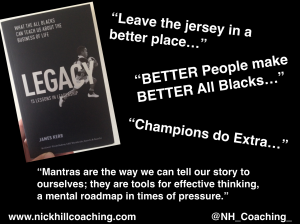
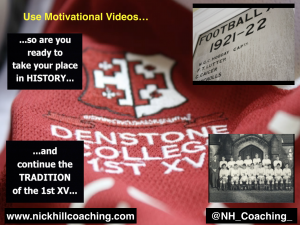
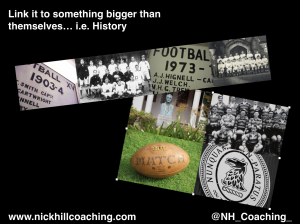
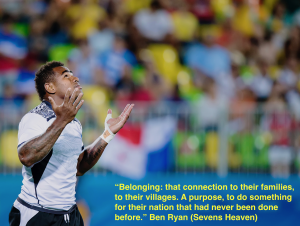
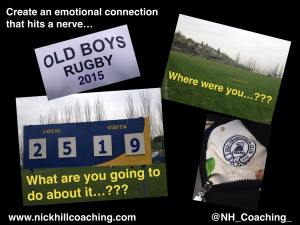
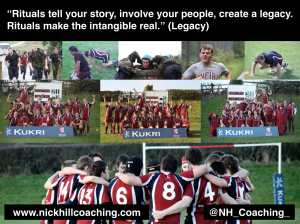

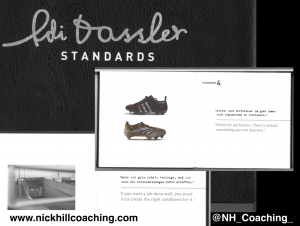
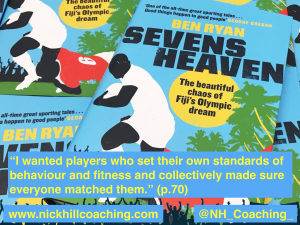
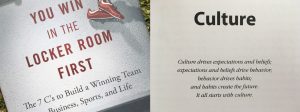
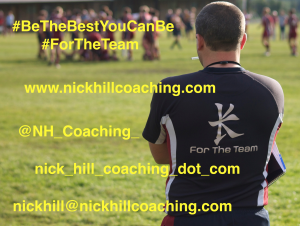
One thought on “WHAT Create and Develop a Team Culture…”